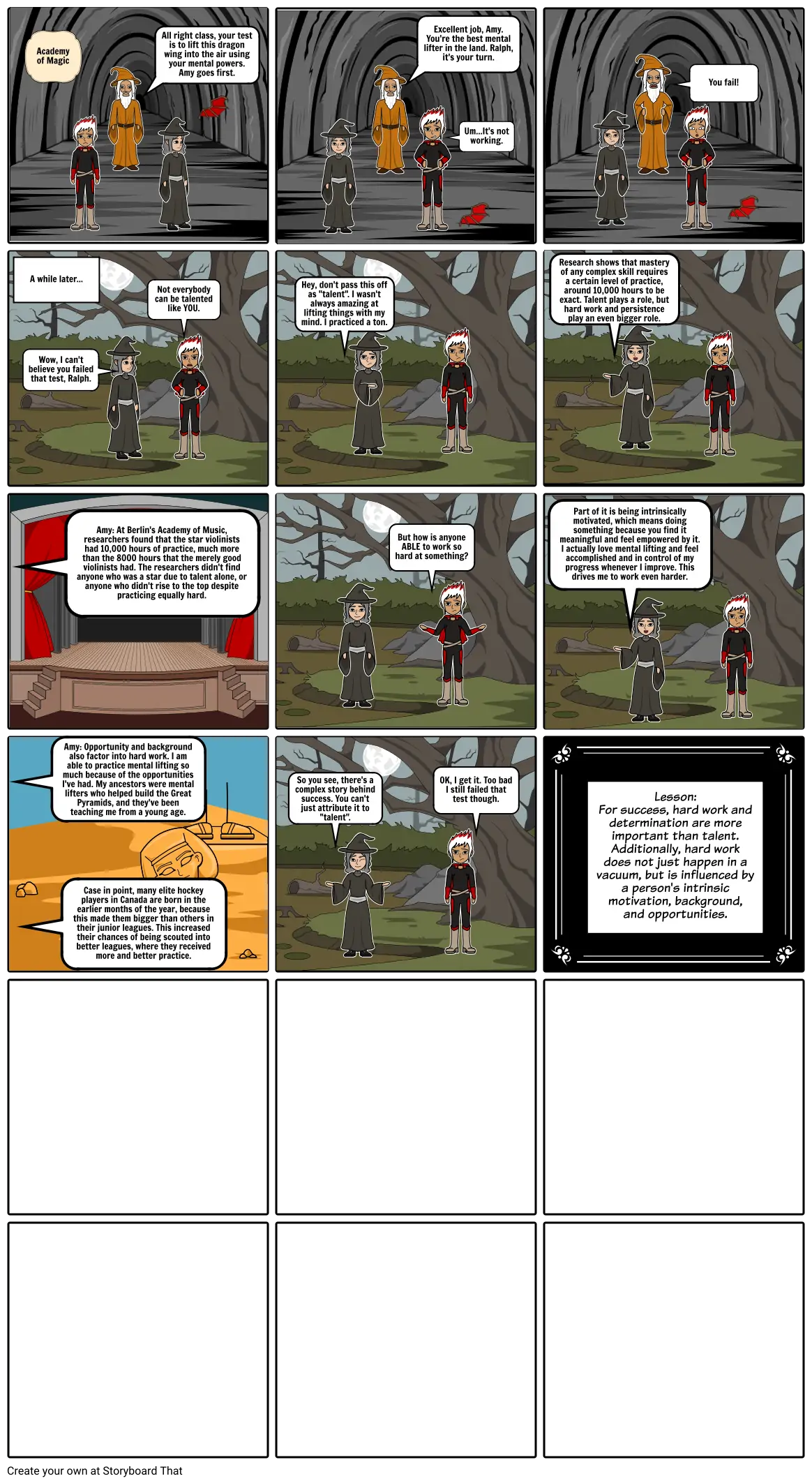Career Impact

Storyboard Text
- Academy of Magic
- All right class, your test is to lift this dragon wing into the air using your mental powers. Amy goes first.
- Excellent job, Amy. You're the best mental lifter in the land. Ralph, it's your turn.
- Um...It's not working.
- You fail!
- A while later...
- Wow, I can't believe you failed that test, Ralph.
- Not everybody can be talented like YOU.
- Hey, don't pass this off as "talent". I wasn't always amazing at lifting things with my mind. I practiced a ton.
- Research shows that mastery of any complex skill requires a certain level of practice, around 10,000 hours to be exact. Talent plays a role, but hard work and persistence play an even bigger role.
- Amy: At Berlin's Academy of Music, researchers found that the star violinists had 10,000 hours of practice, much more than the 8000 hours that the merely good violinists had. The researchers didn't find anyone who was a star due to talent alone, or anyone who didn't rise to the top despite practicing equally hard.
- But how is anyone ABLE to work so hard at something?
- Part of it is being intrinsically motivated, which means doing something because you find it meaningful and feel empowered by it. I actually love mental lifting and feel accomplished and in control of my progress whenever I improve. This drives me to work even harder.
- Amy: Opportunity and background also factor into hard work. I am able to practice mental lifting so much because of the opportunities I've had. My ancestors were mental lifters who helped build the Great Pyramids, and they've been teaching me from a young age.
- Case in point, many elite hockey players in Canada are born in the earlier months of the year, because this made them bigger than others in their junior leagues. This increased their chances of being scouted into better leagues, where they received more and better practice.
- So you see, there's a complex story behind success. You can't just attribute it to "talent".
- OK, I get it. Too bad I still failed that test though.
- Lesson: For success, hard work and determination are more important than talent. Additionally, hard work does not just happen in a vacuum, but is influenced by a person's intrinsic motivation, background, and opportunities.
Over 30 Million Storyboards Created
No Downloads, No Credit Card, and No Login Needed to Try!
